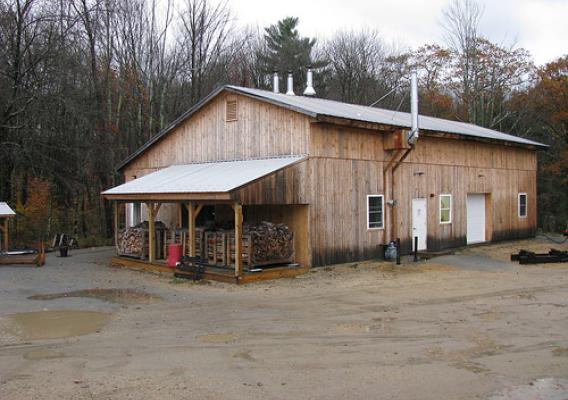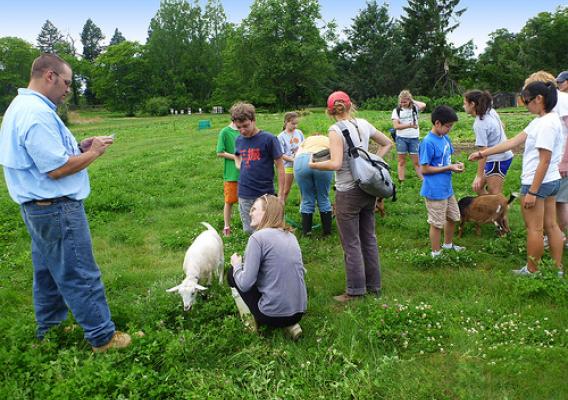Massachusetts Farm to School Project and the Worcester Public Schools are helping kindergarteners understand how and where food is grown. They are teaching children about nutrition through local food tastings, farm and farmer visits, cooking demonstrations and take home produce. The Worcester Kindergarten Initiative is running at nine elementary schools in Worcester, MA, for the 2013-2014 school year! We are pleased to share this piece from the Worcester Kindergarten Initiative Evaluation and Education Specialist, Isabel Burgess.
Guest post by Isabel Burgess, Worcester Kindergarten Initiative Evaluation and Education Specialist
“This is so cool! Our first ever farm!” These are the sounds of kindergartners from Worcester, MA stepping onto one of the Regional Environmental Council’s YouthGROW farms. The farm is small – a vacant lot sandwiched between triple-deckers – but the students are thrilled. They spend the morning taking a tour of the farm; hearing about the youth farmers that manage the space; taste-testing chard and collards straight from the soil; and planting seeds of their own. The family members that joined their children on the trip are also excited to explore. They cannot believe that the farm is there – smack in the middle of the city, so close to where they live.










